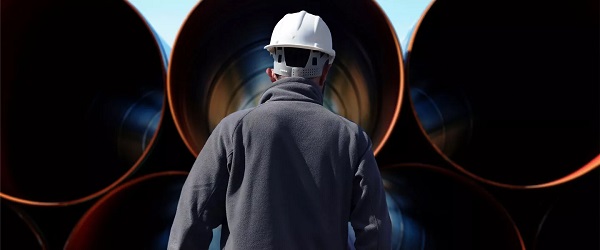Frontier Centre for Public Policy
The Church Thrives When Its Values Clash With Cultural Norms

From the Frontier Centre for Public Policy
By Gerry Bowler
History shows the Church is strongest when it stands apart from the mainstream
“I used to be with ‘it’, but then they changed what ‘it’ was. Now what I’m with isn’t ‘it’, and what’s ‘it’ seems weird and scary to me. It’ll happen to you!”
That moment of cartoon wisdom from Grandpa Simpson in a classic episode of The Simpsons captures a truth that every generation eventually faces. And right now, it’s the Church that finds itself out of step with what society calls “it.” But history suggests that’s exactly when the Church does its best work.
A recent example makes the point. American Christian singer and activist Sean Feucht was banned from performing in several Canadian venues by authorities who considered his views on social issues a threat to “community values.” When the Ministerios Restauracion Church in Montreal allowed one of Feucht’s presentations to proceed, protestors disrupted the event by throwing a smoke bomb into the Church. Police fined the Church $2,500.
One of Feucht’s supporters expressed shock that church values were no longer considered community values. She hasn’t been paying attention. This disconnect didn’t happen overnight—it reflects a profound cultural shift over decades.
For centuries, church values—traditional Christian teachings on life, family and morality—were understood to be the moral foundation of Canadian life. From the Catholic roots of New France to the ministers of the gospel like Tommy Douglas, a Baptist preacher and father of Canadian medicare, and Ernest Manning, an evangelical leader and longtime Alberta premier, Christian influence helped shape this country’s civic culture. Even our national anthem appeals to God.
But since the 1960s, the culture began to drift away from long-established teachings on sex, alcohol, gambling, drug use, abortion, euthanasia and marriage. In response, the largest Protestant denominations—United, Anglican and Presbyterian—watered down their doctrines and embraced the new permissive values of the day.
The results were predictable. Churches that held firm to historic teachings retained and even grew their membership. Those that compromised with secularism lost adherents and saw their influence decline. After all, why would anyone dress up for Sunday service to hear the same moral platitudes already available on every CBC morning show?
Being out of step with the culture isn’t a new role for the Church. History shows that its moral leadership often sparked real social change, especially when it stood against powerful interests.
In ancient Rome, Christians condemned the practice of leaving unwanted infants to die. When Christianity took hold among the ruling class, Roman emperors banned infanticide.
While gladiator games filled arenas with bloodlust, the Church demanded their end. When medieval knights pillaged and murdered at will, the Church established the Peace of God and the Truce of God, protecting peasants and limiting warfare to preserve crops and communities.
During the height of the African slave trade, Quakers, Anglicans and English evangelicals led the decades-long campaign to end the practice. In the 19th century, Church-led reformers fought to abolish child labour, curb alcohol abuse and win women the vote.
Today, many of the moral issues once opposed by the Church are now promoted or normalized by the state itself. In 21st-century Canada, the government sells drugs, alcohol and lottery tickets. Pornography is widely accessible online. Euthanasia is now considered a form of health care in Canada, including in cases involving mental illness and the elderly.
That Church values no longer align with community values should come as no surprise.
Nor should it be cause for alarm. The Church is once again where it has often been: outside the halls of power, surrounded by cultural opposition. And that is where it has always done its most important work.
Gerry Bowler is a Canadian historian and a senior fellow of the Frontier Centre for Public Policy.
Censorship Industrial Complex
When Did Traditional Values Become Hate Speech?
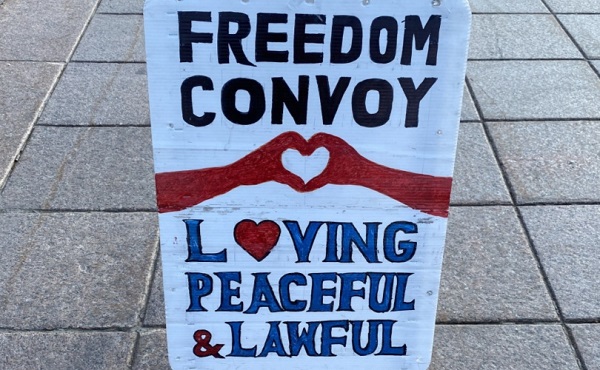
From the Frontier Centre for Public Policy
By Lee Harding
This smear campaign misrepresents peaceful dissent as dangerous radicalism, ultimately undermining trust in institutions and eroding civil debate. Ordinary Canadians are being branded as extremists for holding traditional values.
A disturbing trend has taken hold in Canada and across the Western world, where freedom-lovers and conservatives are categorized as extremists and potential terrorists.
Another headline-grabbing example took place on July 8 when RCMP spokeswoman Staff Sgt. Camille Habel told a CBC interviewer about an alleged militia plot to seize land in Quebec. She said if someone “believed in equal gender rights” but suddenly leaned towards “traditional values … that might be a sign that they’re becoming more extremist.”
Alas, some prominent people have gone so far left that traditional values are “far right” to them. Consider a 2021 report by the House of Commons Standing Committee on Public Safety and National Security. The document said “Ideologically motivated violent extremism [IMVE]… represents a societal issue requiring a whole-of-government approach.”
The document warned that since the pandemic, “IMVE activity has been fueled by an increase in extreme anti- authority and anti-government rhetoric often rooted in the weaponization of conspiracy theories. IMVE influencers promote misinformation and action, including violence.”
The report complained that some witnesses to the committee did not embrace the IMVE term, and instead used phrases such as the “far right” or the “far-right ecosystem.” Here, conservatives, conspiracy theorists and potential terrorists are one big, bad blog.
The tactic is old. In 1943, a Communist directive to American activists advised, “When certain obstructionists become too irritating, label them after suitable buildups as fascist or Nazi or anti-semitic, and use the prestige of anti-fascist and tolerance organizations to discredit them. In the public mind, we constantly associate those who oppose us with those names which already have a bad smell. The association will, after enough repetition, become fact in the public mind.”
This misrepresentation worked well against the Freedom Convoy. One mysterious person with a Nazi flag was enough to dismiss thousands of people as dangerous fascists. But spurious judgments like these malign many good people. This leads to misguided opposition against people who want to uphold Canada, not tear it down.
Trans-activists have their own form of name-shaming. They call out TERFs, meaning trans-exclusive radical feminists. These so-called TERFs believe that biological males have no place in women’s shelters, prisons and sports. This kind of disparagement is all too common. In September 2023, Canadian labour leaders and at least one researcher from a major university joined in a Zoom call to strategize against the 1 Million March 4 Children, a nationwide protest against transgender ideology in schools. A leaked video of the Zoom call showed these leaders and activists using terms like “fascist,” “intolerance,” “hate group,” “transphobic” and “homophobic” against parents and other citizens who wanted ideological concepts on gender kept out of school.
Meanwhile, the Canadian Anti-Hate Network (CAHN) blacklisted Campaign Coalition for Life as a “hate movement” after receiving $640,000 from the federal government to compile a list of allegedly hateful organizations and people.
“We define ‘hate-promoting’ to refer to ideologies, groups, movements and individuals which target members of protected groups,” explained the CAHN booklet entitled 40 Ways to Fight the Far-Right; CAHN even hosts a one-hour workshop that lays out “the intersection between hate, the far right, and conspiracy theories.”
This mirrors the United States where the left-leaning Southern Poverty Law Centre (SPLC) first made a list of bad organizations in 1990. Since 2000, the organization has compiled a “hate map” of these groups, which now number 835. As one example, SPLC calls the Family Research Council an “extremist” “hate group” due to their pro-life, pro-traditional marriage stances.
During Barack Obama’s second term as president, the Department of Defense (DoD) incorporated SPLC assessments into its training on domestic terrorism, leading to undue smears. In 2013, a DoD training presentation at Fort Hood, Texas, listed “Evangelical Christianity,” “Catholicism” and “Tea Party” as fostering extremism. In 2014, soldiers at Fort Bragg in North Carolina were told similar things about pro-gun and pro-life organizations.
In 2015, watchdog organization Judicial Watch openly called on the DoD to stop relying on the “anti-Christian” SPLC for its definitions, saying the group itself was hateful.
A teaching module presented to 9,100 soldiers at Fort Liberty through 2024 labelled National Right to Life and Operation Rescue as potential terrorist threats. Congressional Republicans protested this politicization of military training. In response, an army spokesperson echoed disclaimers made 10 years ago, saying the slides were not policy and were improperly vetted.
In July 2025, Army Secretary Dan Driscoll called it a “grievous error” to equate conservative groups with terrorists and vowed it would never happen again. Unfortunately, Canadians have no such assurances.
Lee Harding is a research fellow with the Frontier Centre for Public Policy.
Business
BC Ferries Deal With China Risks Canada’s Security

From the Frontier Centre for Public Policy
A BC Ferries contract with China risks national security, public transparency and Canadian safety. Why are we still looking the other way?
Scott McGregor exposes how a billion-dollar BC Ferries deal with a Chinese shipyard reflects a deeper failure: Canadian institutions are shielding Beijing’s interests—at taxpayers’ expense—while ignoring glaring national security risks.
BC Ferries, the taxpayer-owned company operating ferry services along the B.C. coast, didn’t just sign a billion-dollar shipbuilding contract in China; it handed Beijing leverage over Canadian infrastructure.
Behind the bureaucratic talk of cost and efficiency lies a deeper scandal: a taxpayer-funded deal that puts national security, public transparency and Canadian citizens at risk, all to benefit a hostile regime.
When theBreaker.news, an independent investigative outlet in BC, filed freedom of information requests to uncover the contract’s details, BC Ferries refused to release a single page. The excuse? Disclosure might threaten its financial position, safety and the “interests of third parties.”
This refusal didn’t happen in a vacuum. It came the same day Chinese President Xi Jinping stood next to Russian President Vladimir Putin and North Korean leader Kim Jong Un in Beijing, giving a vivid display of authoritarian solidarity.
BC Ferries’ secrecy is bad optics. It flies in the face of multiple rulings by the B.C. Information and Privacy Commissioner, who has repeatedly upheld the public’s right to see contracts signed by public bodies. Cities and Crown corporations have been ordered to disclose their agreements with FIFA, the international soccer governing body, and with B.C. Place Stadium.
In fact, public institutions have disclosed deals far less sensitive than this one. Yet BC Ferries, propped up by a $1-billion loan from the Canada Infrastructure Bank (CIB), insists its Chinese shipbuilder must remain shielded from scrutiny. The result isn’t protection for taxpayers. It’s protection for Beijing’s leverage.
And that’s just the beginning. The more dangerous problem is legal. Canada has no bilateral agreements with China to guarantee fair legal treatment of its citizens. No non-prosecution provisions. No mutual legal assistance mechanisms. No safety net.
At home, corporations can sign remediation agreements to avoid prosecution if they cooperate and commit to reforms. But those agreements stop at Canada’s borders. They offer no protection for Canadians working in Weihai, the Chinese city where the vessels are built. If a dispute arises or Beijing flexes its power, those Canadians could face arbitrary detention, exit bans or national security charges. In a diplomatic crisis, they could become pawns.
This isn’t a theoretical risk. Michael Kovrig and Michael Spavor spent nearly three years in Chinese prisons after Canada detained Huawei executive Meng Wanzhou. That episode exposed the Chinese Communist Party’s playbook of hostage diplomacy. It should have ruled out any deal that places Canadian citizens or Crown assets under Chinese jurisdiction.
Yet even with that memory still fresh, the arrangement continues, quietly, with little public debate.
What we’re witnessing is a textbook case of hybrid warfare. Economic deals masked as trade. State financing disguised as commercial contracts. Political leverage embedded in infrastructure projects. And Canada, still clinging to the outdated promises of globalization, is paying for its own exposure.
At the moment when Beijing is supplying components for Russia’s war machine, Ottawa is greenlighting the outsourcing of core coastal infrastructure to a state-owned Chinese shipyard.
Parliament appears to be taking notice of the situation. The House of Commons Transport Committee has initiated a review of the $1 billion federal loan associated with the BC Ferries deal. The expected witnesses for this review include the CEO of the corporation, the CEO of the Canada Infrastructure Bank (CIB), Transport Minister Chrystia Freeland and Infrastructure Minister Gregor Robertson.
The review follows political pushback, including criticism from Freeland, who resigned from cabinet on Sept. 16, and had previously called the outsourcing decision “disappointing.”
This review is necessary because BC Ferries is a Crown-owned utility, governed by an NDP-appointed board and funded through federal support.
When a public entity conceals the terms of a massive contract and hands work to a Chinese state-controlled firm, it’s not just acting secretively. It’s normalizing a culture of opacity that weakens Canadian sovereignty and shields foreign interests from democratic accountability.
BC Ferries defends the deal by pointing to its projected economic benefits: four new major vessels, hybrid propulsion systems, 50,000 job-years and more than $4.5 billion in forecasted economic output.
But those figures come at the cost of strategic blindness.
Time and again, Canadian policymakers treat China like an ordinary business partner, even as the Chinese Communist Party uses law, finance and supply chains as tools of global influence. While other democracies are pulling back from partnerships with Chinese state firms, Canada looks the other way, tethered to outdated trade assumptions and short-term economics.
The remedy starts with sunlight. Contracts signed by public bodies must be disclosed, especially when they involve authoritarian regimes. But transparency is only the first step.
Canada must adopt a hybrid warfare lens for every major economic decision. That means asking hard questions: Does this deal strengthen or weaken our position? Does it open the door to foreign influence? Does it endanger Canadians abroad? Short-term savings can breed long-term dependency, and in China’s case, geopolitical exposure.
BC Ferries’ shipbuilding contract with China isn’t just a procurement mistake. It’s a warning.
Without legal safeguards, public oversight and strategic foresight, Canada isn’t just buying ferries; it’s handing over control.
And Canadians deserve better.
Scott McGregor is an intelligence consultant and co-author of The Mosaic Effect. He is a senior fellow at the Council on Countering Hybrid Warfare and writes here for the Frontier Centre for Public Policy.
-
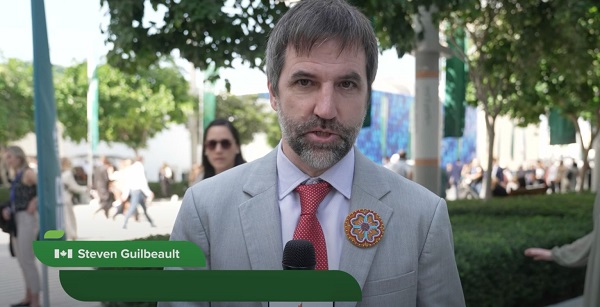
 Censorship Industrial Complex2 days ago
Censorship Industrial Complex2 days agoCanada To Revive Online Censorship Targeting “Harmful” Content, “Hate” Speech, and Deepfakes
-
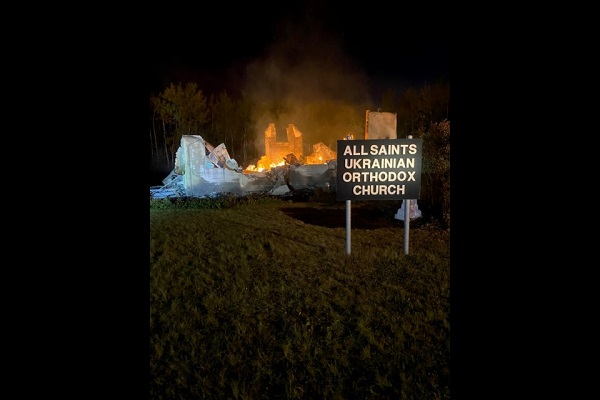
 Alberta2 days ago
Alberta2 days agoOrthodox church burns to the ground in another suspected arson in Alberta
-

 Fraser Institute2 days ago
Fraser Institute2 days agoAboriginal rights now more constitutionally powerful than any Charter right
-
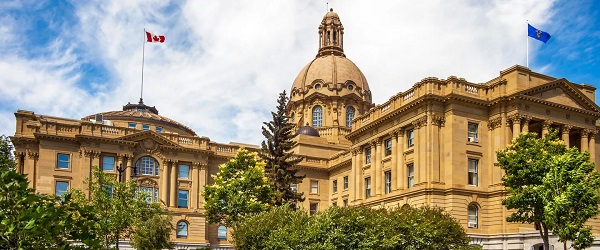
 Alberta1 day ago
Alberta1 day ago$150 a week from the Province to help families with students 12 and under if teachers go on strike next week
-

 International2 days ago
International2 days agoArab and Muslim nations rally behind Trump’s Gaza peace plan
-

 Business2 days ago
Business2 days agoNew PBO report underscores need for serious fiscal reform in Ottawa
-
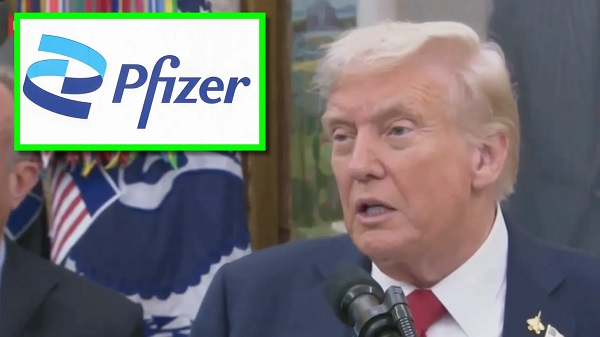
 Business1 day ago
Business1 day agoPfizer Bows to Trump in ‘Historic’ Drug Price-Cutting Deal
-

 Agriculture2 days ago
Agriculture2 days agoCarney’s nation-building plan forgets food





